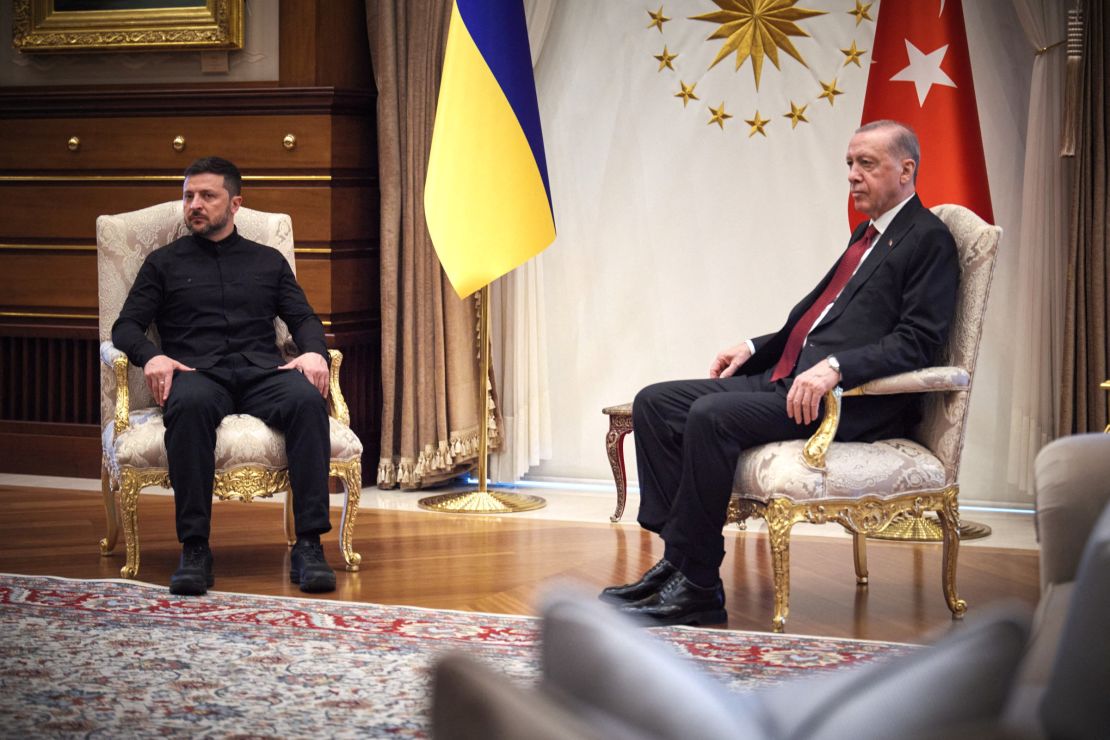Zelensky and Putin Set for Historic Meeting, Fueling Hopes for Ukraine-Russia Peace
In a significant diplomatic breakthrough, Ukrainian President Volodymyr Zelensky and Russian President Vladimir Putin have agreed in principle to a face-to-face meeting, according to Turkish Foreign Minister Hakan Fidan. This development comes amidst ongoing tensions and conflict in Ukraine and has sparked renewed hope for a potential resolution to the war that has ravaged the region since 2022.
The prospect of a meeting between the two leaders marks a pivotal moment in the protracted conflict, which has led to thousands of casualties and displaced millions. The announcement by Fidan, made during a press conference in Ankara, indicates that Turkey is playing a crucial role as a mediator in the ongoing crisis. The significance of this potential meeting cannot be overstated, as it could pave the way for diplomatic discussions aimed at de-escalating hostilities and addressing the humanitarian crisis that has emerged as a result of the war.
Details around the proposed meeting remain sparse, with no specific date or location confirmed. However, Fidan emphasized the importance of dialogue, stating, "Both leaders understand that the path to peace lies in direct communication." The Turkish government has long positioned itself as a mediator in the region, leveraging its unique relationships with both Russia and Ukraine. Previous attempts at brokering peace have seen varying degrees of success, but this latest development signals a willingness from both sides to explore diplomatic avenues, potentially influenced by international pressure and the ongoing humanitarian fallout from the conflict.

Image for Zelensky and Putin Set for Historic Meeting, Fueling Hopes for Ukraine-Russia Peace
Experts are cautiously optimistic about the implications of this meeting. Dr. Elena Makarova, a political analyst specializing in Eastern European affairs, noted, "While the agreement to meet is a positive sign, it is crucial to remember that past negotiations have often stalled due to entrenched positions on both sides." Historical precedents, such as the Minsk agreements, illustrate the challenges of reconciling differing national interests. Nevertheless, the current geopolitical landscape, shaped by rising tensions in other regions, such as the recent developments in Lebanon, may provide additional impetus for a resolution in Ukraine.
The potential meeting holds significant consequences for the future of Ukraine and the broader region. If successful, it could lead to a ceasefire and initiate negotiations regarding territorial disputes, security guarantees, and humanitarian assistance. Conversely, failure to reach a consensus could exacerbate existing tensions and prolong the conflict, further destabilizing Eastern Europe. As the international community watches closely, the focus will be on how both leaders approach this unprecedented opportunity for dialogue and whether they can transcend their historical animosities.
Looking ahead, the world awaits the outcome of this proposed meeting. While the road to peace remains fraught with challenges, the agreement to engage in dialogue represents a crucial step forward. As previously reported, the situation in Ukraine continues to evolve, with the potential for both positive and negative ramifications. The international community"s role will be vital in supporting any agreements reached, ensuring that the voices of the Ukrainian people are heard and that a sustainable peace can be achieved. Only time will tell if this meeting can transform the landscape of a conflict that has endured for too long.


![[Video] Heavy clashes and gunfire reported in Baghdad, Iraq](/_next/image?url=%2Fapi%2Fimage%2Fthumbnails%2Fthumbnail-1768342239932-848qsh-thumbnail.jpg&w=3840&q=75)




![[Video] Gunfire between Iraqi security forces and Sadr militias in Baghdad](/_next/image?url=%2Fapi%2Fimage%2Fthumbnails%2Fthumbnail-1768343508874-4redb-thumbnail.jpg&w=3840&q=75)
